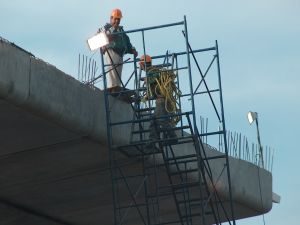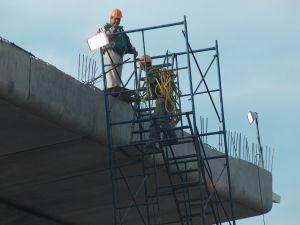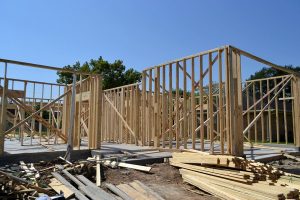Construction Arbitration
Complex New Jersey construction law cases can be extremely expensive to litigate in court because of the amount of documents involved, the number of witnesses, and the need for experts. Therefore, many construction contracts contain arbitration provisions. The view is that arbitration can save money in the  litigation process, but still provide an enforceable dispute resolution process.
litigation process, but still provide an enforceable dispute resolution process.
However, it would not be accurate to call construction arbitration “cheap” or “inexpensive.” Essentially, arbitration is a private litigation process with limited discovery and appeal rights. By limiting discovery, particularly depositions, a significant source of expense is eliminated, and by limiting appeal rights, arbitration can provide more finality. However, there is still discovery. Documents are generally exchanged before the hearing, so there is still expense, but costs are saved because arbitration rarely involves depositions. Likewise, while experts are not normally deposed, they are still required and must prepare pre-hearing reports about their expected testimony. All of this entails significant expense. In addition, while there are minimal filing fees and the services of courts are generally free, the use of an arbitration forum in construction law disputes entails significant fees, and in addition the parties have to pay the arbitrator for all his or her time.
 seeking to get paid for their work.
seeking to get paid for their work. New Jersey Lawyers Blog
New Jersey Lawyers Blog


 to use
to use  implications for contractors. The decision is published, so it is precedent for future cases in which contractors challenge the award of New Jersey construction contracts by state and local governments. In this post I won’t dwell on the details of which contractor was right and which was wrong, but rather I’ll focus on the Appellate Division’s examination of the procedures followed, which is a cautionary tale about the ability of New Jersey construction contractors to meaningfully object to the award of public contracts.
implications for contractors. The decision is published, so it is precedent for future cases in which contractors challenge the award of New Jersey construction contracts by state and local governments. In this post I won’t dwell on the details of which contractor was right and which was wrong, but rather I’ll focus on the Appellate Division’s examination of the procedures followed, which is a cautionary tale about the ability of New Jersey construction contractors to meaningfully object to the award of public contracts. litigation process, but still provide an enforceable dispute resolution process.
litigation process, but still provide an enforceable dispute resolution process. is to have a well-written contract.
is to have a well-written contract. but not including any order requiring the taking of emergency measures….” This is an important tool under New Jersey
but not including any order requiring the taking of emergency measures….” This is an important tool under New Jersey  agreed to and then not get paid, despite the fact that they met all the project’s specifications and did a great job. It is a well-founded worry. Companies or people who don’t want to pay devise many different schemes, sometimes claiming defects with the work, delay damages, failure to do proper paperwork, the excuses are as varied as is human imagination. To be clear, sometimes these claims are legitimate, but sometimes they are not, and good contractors need to get paid to do the work and to stay in business.
agreed to and then not get paid, despite the fact that they met all the project’s specifications and did a great job. It is a well-founded worry. Companies or people who don’t want to pay devise many different schemes, sometimes claiming defects with the work, delay damages, failure to do proper paperwork, the excuses are as varied as is human imagination. To be clear, sometimes these claims are legitimate, but sometimes they are not, and good contractors need to get paid to do the work and to stay in business.